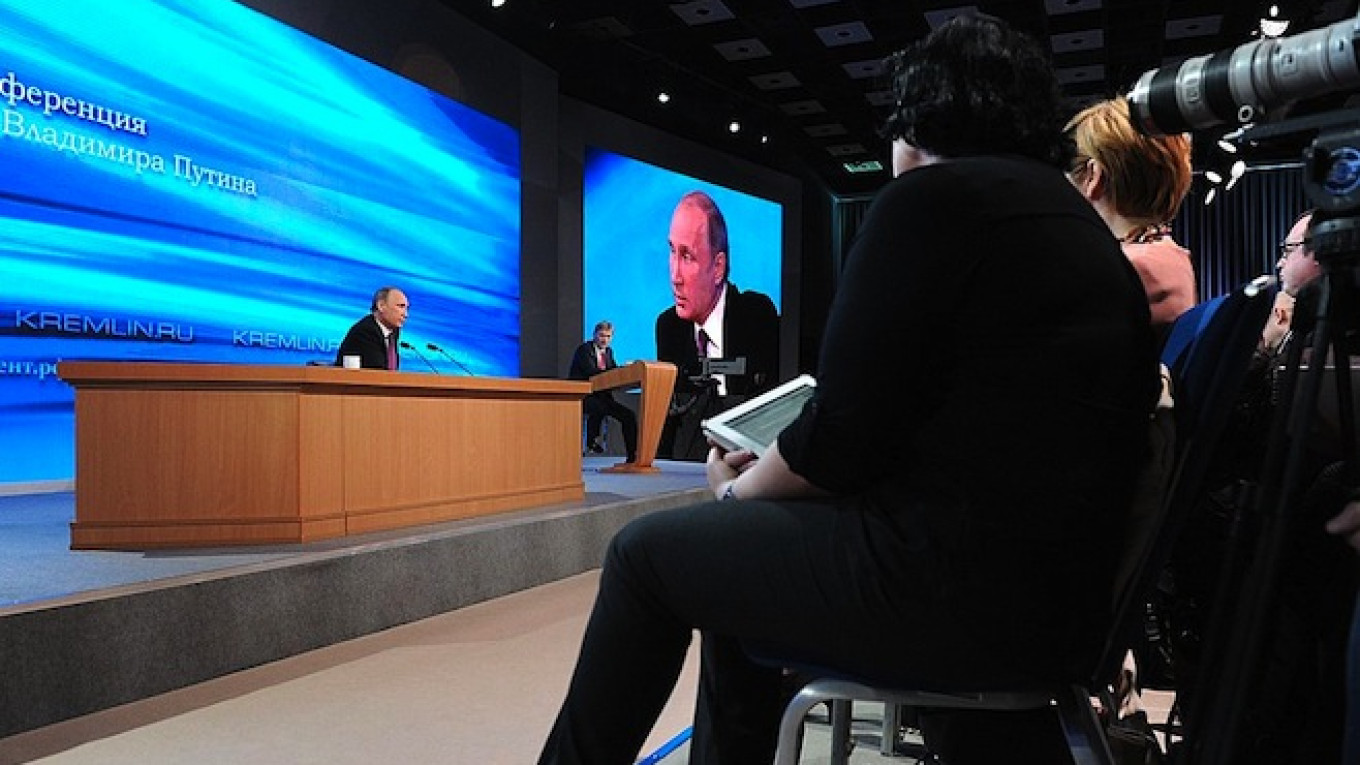President Vladimir Putin will present his annual state of the nation address on Dec. 3, the Kremlin press office announced Monday.
The speech will begin at noon in Moscow, Russian news agencies reported Sunday, but the Kremlin has not yet confirmed the start time.
Putin will hold his annual news conference on Dec. 17 — a major presentation that typically lasts for several hours and brings hundreds of reporters to the Kremlin.
No information about the main topics of this year's state of the nation address have been released, and presidential spokesman Dmitry Peskov has earlier this month denied media reports that the speech will focus on security issues following the downing of a Russian passenger airplane over Egypt's Sinai Peninsula.
Last year, Putin made his state of the nation address on Dec. 4. The main topics of the speech included the annexation of Crimea from Ukraine — which Putin described as a “historic reunification” with the Black Sea peninsula — Russia's economic troubles amid Western sanctions imposed over the Ukraine crisis, and defense issues. Putin portrayed Russia as a strong state that would overcome its difficulties.
This year's address comes amid Russia's air strikes in Syria — a military operation that Moscow maintains is aimed against the Islamic State terrorist organization, but which Western governments claim is intended to prop up Syrian President Bashar Assad's regime by targeting his political opponents.
The Russian economy must still contend with Western sanctions over the Ukrainian crisis, and the souring of Moscow's relations with Turkey after the NATO member country shot down a Russian bomber, accusing it of violating Turkish airspace.
Prior to the downing of the Russian bomber jet last week, Ankara had urged Moscow to cease its air strikes against territories controlled by Syria's Turkmen rebels — tribesmen of Turkish descent who oppose the Assad regime.
Islamic State is a terrorist organization banned in Russia.
A Message from The Moscow Times:
Dear readers,
We are facing unprecedented challenges. Russia's Prosecutor General's Office has designated The Moscow Times as an "undesirable" organization, criminalizing our work and putting our staff at risk of prosecution. This follows our earlier unjust labeling as a "foreign agent."
These actions are direct attempts to silence independent journalism in Russia. The authorities claim our work "discredits the decisions of the Russian leadership." We see things differently: we strive to provide accurate, unbiased reporting on Russia.
We, the journalists of The Moscow Times, refuse to be silenced. But to continue our work, we need your help.
Your support, no matter how small, makes a world of difference. If you can, please support us monthly starting from just $2. It's quick to set up, and every contribution makes a significant impact.
By supporting The Moscow Times, you're defending open, independent journalism in the face of repression. Thank you for standing with us.
Remind me later.


